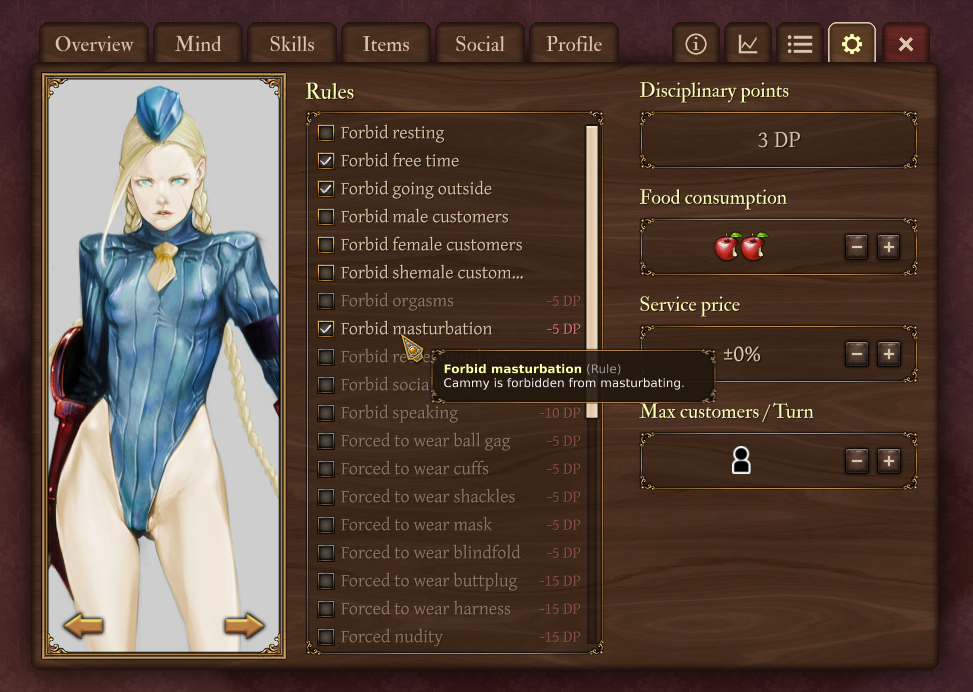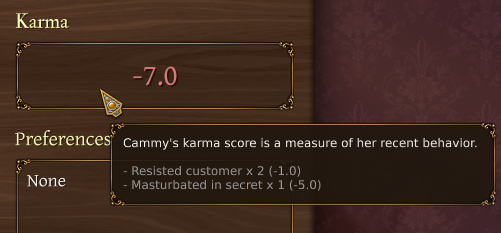(This is an older, unpublished post, that I decided to finish and publish months after this feature was implemented.)
Since my last update, I’ve added random events to the game, or rather, I rewrote an existing but unused random events system. The previous system was more or less what you’d expect. The game had a list of authored events and it would trigger them, randomly, like pulling a chance card in Monopoly. This wasn’t very interesting and it was honestly hard to write interesting events that would fit at any point of a typical game.
The new system is much more flexible, and was motivated by how well it dovetails with other parts of the game. Like most parts of this game, it uses contextual information to choose the best event for any given situation (or none at all).
Random events are instead triggered by the characters themselves, either alone or together with another character. If that other character happens to be the player, they’d be given the choice to respond, otherwise, the event may just happen in the background.
For instance, a slave could ask their master for sex:

But this would only happen if, in this case, Cammy wanted this to happen, or another way of looking at it, if the player had treated Cammy in such a way that they earned it.
Micro-events
The new system also implements something I call “micro-events,” which are mostly there to stir the pot, so to speak. It’s meant to simulate slaves interacting amongst themselves or even behind your back.
These are very small, simple events, hence the name, and they’re things like slaves socializing with each other, getting into arguments or casually flirting. All of which causes their relationships to slowly shift over time without the player’s direct involvement. So as the player, you may discover that your A-team of slaves had a falling out and suddenly hate each other, or that two of your slaves developed feelings and fell in love.
Evolving relationships was the original intent for the relationship system, but I found that it wouldn’t work unless there was also spontaneity.
Secrets
Some of these micro-events may actually be entirely hidden from you. Such events are called “secrets”. A secret could be something mild, like pocketing the tip from a customer, or it could be a slave breaking one of your rules, making it a “crime”.
Crimes should naturally be punished, but they can only be punished after you’ve discover them. So there’s a new action called “Interrogate”, which will let the player question a slave for any secrets they might be holding. Obedient slaves will gladly tell you, and even tell secrets about other slaves. With disobedient slaves, it won’t be that easy.

Rules and Karma

As their master, you decide what your slaves are and aren’t allowed to do. But I wanted to support this with some gameplay. Therefore, some rules have a disciplinary cost. That essentially means that as your slave gains discipline, you can choose where that discipline goes, but also that you won’t be able to force them into everything all at once.
When a slave misbehaves, that is reflected in their Karma score. Negative karma means they can be punished while positive karma can be rewarded. Whenever you punish a slave, their karma is converted into permanent obedience, and gets reset. Choosing when and how often to punish a slave will greatly impact their growth.

